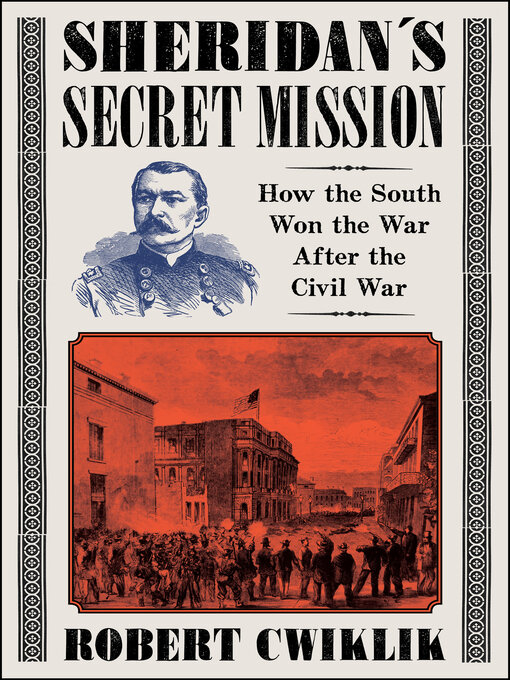A deeply researched, narrative history recounting the little-known late–Reconstruction era mission of General Philip Sheridan, a Union Army hero dispatched to the South ten years after the Civil War to protect the rights of newly freed black citizens, who were under siege by violent paramilitary groups like the White League intent on erasing their postwar gains.
In late 1874, nearly ten years after the Civil War, former slaves, or freedmen, found themselves under siege in the South by violent paramilitary groups like the White League, intent on erasing their newly won voting rights and other postwar gains and consigning them to a condition little better than slavery. President Ulysses S. Grant, vowing to enforce, "with rigor," laws protecting the rights of former slaves, asked General Philip H. Sheridan to visit New Orleans and other Southern trouble spots to investigate the freedmen's plight, all while pretending to be on vacation. Sheridan's Secret Mission recounts the feisty Union war hero's Southern sojourn amid tragic episodes of racial terror that ultimately fueled the overthrow of Reconstruction-era protections for black rights.
Sheridan made a splash on his arrival in New Orleans on New Year's Eve, accompanied by family and friends and proclaiming they were sightseers bound for Cuba. But a few days later, through trickery and force, Democrats seized control of the nearby state House of Representatives, apparently assisted by White League operatives, although the state's majority black electorate had arguably put Republicans, the party of Lincoln and the freeing of the slaves, in control of the legislature.
Federal soldiers stationed nearby ushered several Democrats out of the House chamber, and Sheridan publicly denounced the "spirit of defiance to all lawful authority" in Louisiana. He threatened to round up White League leaders to face trial before military tribunals. In years past, Northerners might have rallied to support the Union hero. But the public was weary of war issues. Many Northern newspapers condemned Sheridan's actions and deplored the appearance of federal bayonets in a sovereign state legislature. Some called for Grant's impeachment.
The controversial clash in the Louisiana legislature lies at the heart of this revelatory new narrative history. Sheridan's Secret Mission illuminates the bitter career of racial oppression in the United States and resonates powerfully with our contemporary "post-racial" condition.


